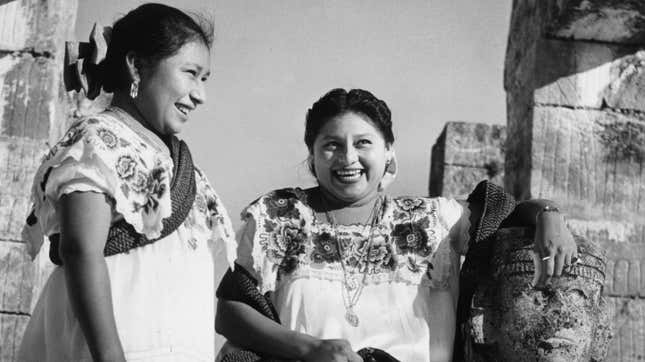Summer Reading Diary: Strength and Quietude in Mexico
In Depth

Most vacations feel short, but the very end of summer is when they seem most wispy and diaphanous, like they maybe never happened at all.
My annual vacation occurred in early August—just a few weeks ago, somehow—but I got on a plane to Mexico the day that a young, dumb white supremacist from a small town in Texas decided to drive several hours west to El Paso for the explicit purpose of murdering “Hispanics,” for the explicit reason that he believes, thanks in part to rhetoric proliferated by the president, that “Hispanics”—not the Mexican nation as implied, but really the idea of brownness—have some boogeyman interest in “invading” Texas, and therefore supplanting whites of European ancestry in present-day America.
“We are a nation of immigrants” is the logline politicians and pundits are always doling out, a callback to John F. Kennedy’s 1958 immigration reform tome A Nation of Immigrants. It is a fact about the United States in its 20th century iteration, but as a line in a stump speech it is precipitously limp, and usually deployed in a way that neutralizes and defangs the politics of an inherently political, moral predicament. In politicians’ parlance, the phrase refers to America’s recent past, and vaunted by its own nostalgia: the heroic “huddled masses” are an abstraction, almost never the determined, desperate refugees of the present. “We are a nation of immigrants” as a stump speech erases the fact that we are primarily a nation built on chattel slavery, and yet the phrase itself has now been literally erased from the mission of the government agency tasked with issuing green cards. “Go back to where they came from,” said the president of this “nation of immigrants,” to “shithole countries” that the shithead couldn’t point out on a map. Since I’ve been politically cognizant—maybe since ’90 (Desert Storm), but definitely since ’91 (Anita Hill)—the perceived breaks from these warped political strictures feel like a nice reprieve, but as vacations go, they don’t really happen at all.
So for my last few travels, I’ve been “going back to where I came from,” loosely—the land where my abuela, abuelo, tías, tíos, and mom came from—and reorienting my familial compass with books that can speak to generational transience. Last summer I spent a week in Cuidád de Mexico, the greatest city I’ve visited, where I wandered the streets and immersed myself in Octavio Paz’s The Other Mexico: Critique of the Pyramid, a long, scathing essay about the fabrication of the Mexican nation-state—the way it absorbed pre-Colombian indigenous cultures as a proud national identity while erasing and subjugating indigenous peoples, who continue on despite it.
-

-

-

-

-

-

-

-

-

-

-

-

-

-

-

-

-

-

-

-

-

-

-

-

-

-

-

-

-

-

-

-

-

-

-

-

-

-

-

-








































